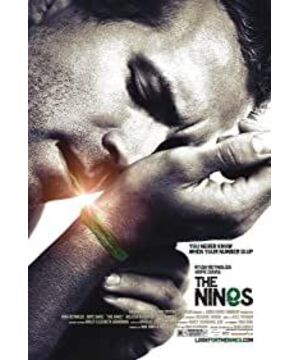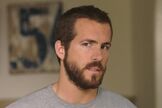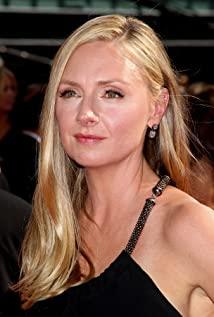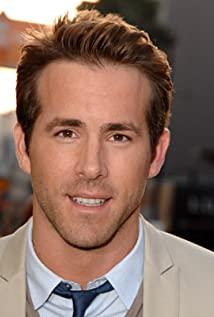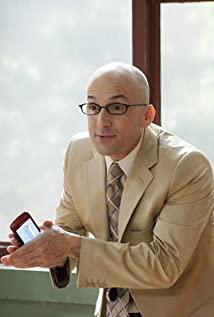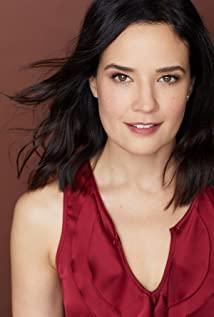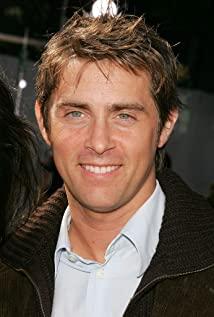At the same time, this film surprised me. In a place like Hollywood, where a lot of bad films are often made for the box office, it is so convoluted to make a film. What is the positioning of this film? Literary films or commercial films have also become a mystery to me. Maybe it's like the dialogue between the two protagonists in the film talking about the TV series: "Do they really think people can't understand?", "Idiots may not understand." Maybe I'm such an idiot, and I'm still here Make a fuss. Anyway, I love this movie.
In Part 1, the mystery began to be revealed, the mystery of the identity of the protagonist Ryan. From the beginning of all kinds of confusing and weird signs, to Ryan doubting his identity, to finally Ryan crossing that line, looking at Melissa's helpless and desperate expression, then Melissa and the whole world disintegrate and disappear in front of him, the film suddenly enters Part 2, the puzzle is not solved.
In Part 2, the actors are still the same, but they tell a different story. It seems to have happened before Part 1, which is a bit like a prequel, but it does not link the past and the future, so the story of Part 2 can almost be described as verbose. . But in such a long story, at the end of Part 2, the identity of the protagonist is told what the identity of the protagonist is, but the unfinished dialogue in the plot of Part 1 is used. No matter how unreasonable the arrangement is, it has its deep meaning.
"You are a multidimensional being of enormous, almost infinite power, and this is the body you are in."
...
"If God is ten, an ultimate, you are more like a nine, and human beings are seven."
"You improvised the world and decided to stay and see how it would turn out. You can destroy the world with just one thought." The
film proclaims, borrowing the unfinished dialogue in the plot of Part 1. This is the end of hide and seek, but the bottom line is still not revealed.
It turns out that the protagonist is a "nine" who is "one" lower than God, and this planet and the human being as "seven" are created by him. what happened in the world. "Nine" entered the world of his own creation and participated in the game of "Seven", in order to "see how it will become?" What will this world become? In the end, what will he do with the world he has created?
Part 3 is still the same actor with a different story. What's even weirder is that it plays the plot of the TV series in the film (hehe, it's a bit confusing to say), and in this part, the truth is further unraveled.
"Do you think you're human? I'll tell you a little secret, you're not."
"You're an addict, G."
"Actually, this planet and these people, they're your medicine."
"At first you just Go in once in a while, see how the cavemen are doing, move a continent or two. But then you get more and more obsessed. You start playing some of your own roles. . . . and soon you're playing every minute."
"You disappeared for 4,000 years, ... we need you to go back."
Another "Nine" Sierra explained all the causes and consequences, and the truth came out! But it wasn't the most shocking.
At the end of the film, the protagonist "Nine" is about to leave the human world he created and return to his origin.
"Nine" to the dialogue with the heroine:
"I think I'm more worried about human beings themselves, you always kill each other."
"It's often in your name, correctly, and we're getting more proficient at it. "
Two understatements express the essence of the human world. Throughout history, the era of human world war is more than the era of peace. It is a miracle that the human world can develop to this stage. Not only cannibalism, even if there is no cannibalism, human beings deceive each other in the face of interests. No matter how bad anyone does anything, they all have their own perfect reasons.
In Part 2, it is the kind of human nature where interests come first and everything else is arranged:
Gavin is the most outstanding screenwriter at present, and the top of the TV station decided to broadcast a TV series that Gavin wrote for his female friend Melissa. But the audience didn't seem to like the protagonist played by Melissa, so the TV station forced Gavin to replace Melissa with another actor, and Gavin and Melissa turned against each other. When the whole drama was filmed and ready to be broadcast, the executives dropped Gavin's drama because another screenwriter's drama had a higher rating than Gavin's drama. Gavin sacrificed his friendship with Melissa for nothing.
It can be seen that whether Gavin's drama can be broadcast is directly controlled by the decision of the top management of the TV station, and the decision of the top management of the TV station is directly controlled by the audience. The audience seems to have the supreme power of life and death. The decision indirectly affects Gavin's play and the fate of the people involved. But from another point of view, the audience is actually just a tool manipulated by the TV station to make money from advertisers, and its influence on the TV station is only similar to the reaction force of fish to decide which bait the fisherman uses. , but in any case, this is also a kind of anti-restriction.
In the human world, the social relations that are both mutually beneficial and mutually restrictive and manipulate each other are so clearly described in Part 2. In fact, this relationship also reflects the modern business society. It can be seen that the social relationship and social structure of our human beings are not perfect, and all kinds of ugly things are inevitable. Is it to blame the creator for not designing it well, or is it to blame humans for making their own society like this?
More fundamentally, if a world like ours was really created by the Creator, would the Creator still want this world? Will he choose to destroy the world and start over?
If the film ended when "Nine" left and the world collapsed into nothingness, I would like this film even more, but the creator of this film insisted on expressing his good wishes for the world in the end, the world will eventually It will become better and better, whether it is the creator who has repaired it for us, or we humans will one day wake up and no longer have to worry about the creator for us humans. Therefore, the protagonist "Nine" said that he did not want to adopt the "worst plan" like the previous eighty-nine versions, that is, destroy the world and start over. At the same time, the film ends by borrowing the words of the little girl, "He won't come back, but nothing will happen. He has everything sorted out."
Can our world really be like this?
View more about The Nines reviews


